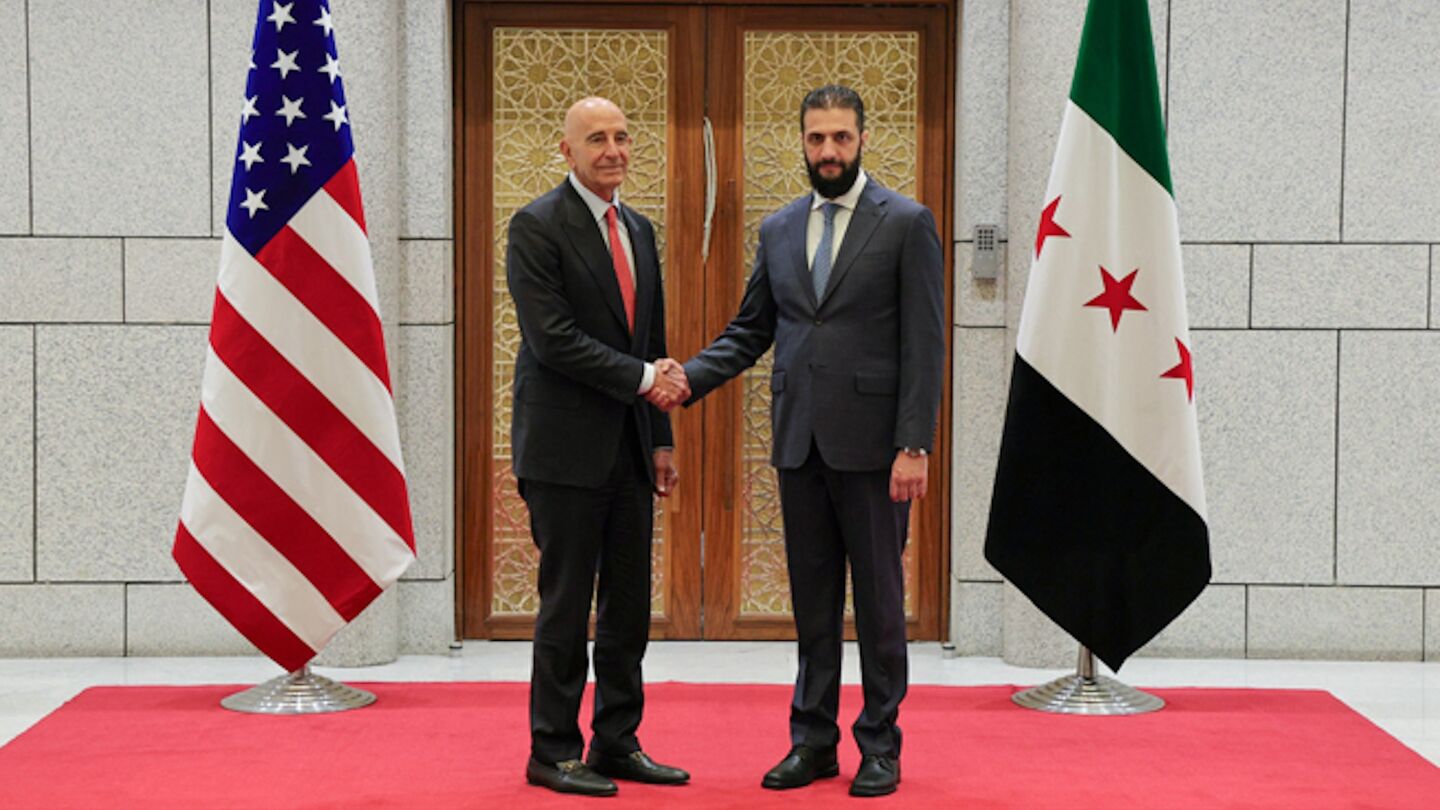The United States is increasingly concerned that Syrian President Ahmed al-Sharaa’s push for inclusive governance and cooperation with the West could make him a target for assassination, warned US Special Envoy Tom Barrack in a recent interview with Al-Monitor.
Barrack, who met twice with Sharaa in recent weeks, including during President Donald Trump’s landmark visit to Riyadh, underscored the fragility of Syria’s transition. He cited growing threats from radicalized factions, including splinter groups from the foreign fighters who helped topple the Assad regime in December 2024, and warned that without swift economic relief, Syria risks renewed instability. “The longer it takes to bring relief, the more factions will look to disrupt,” he said.
Sanctions Lifted, but Challenges Remain
Following Trump’s unilateral decision to lift all US sanctions on Syria, Barrack has emerged as a central figure shaping the administration’s new Syria policy. Rejecting accusations of “nation-building,” Barrack said the US is not setting conditions but expects transparency and progress on key issues—such as countering ISIS, reducing militant activity, and pursuing normalization with Israel.
The US has already issued waivers under the Caesar Act and plans further executive action to reverse decades-old sanctions. Barrack framed these moves as a necessary break from failed past policies. “This was Trump being Trump,” he said, calling the decision “brilliant.”
Sharaa’s Risky Balancing Act
While Sharaa’s history as the former leader of Hayat Tahrir al-Sham raises eyebrows in Washington, Barrack described him as “bright, confident, and focused,” praising his pivot toward a “soft Islam” and his outreach to Syria’s Christian and Druze communities. Sharaa has eased hardline social restrictions, pledged property restitution to minorities, and signed a military integration deal with the Kurdish-led SDF.
Still, the path ahead is fraught. Sectarian violence continues in parts of Syria, and tensions persist over integrating armed factions and controlling critical infrastructure like the Tishreen Dam. “The only way Syria survives,” Barrack said, “is by avoiding the chaos of multiple non-state actors and embracing a shared Syrian identity.”
Barrack hinted at emerging détente with Israel, noting Syria’s commitment to the 1974 ceasefire and hinting at eventual normalization. “Even if they don’t talk yet, there is a silent understanding,” he said, suggesting that both sides know military engagement now would be disastrous.
Restoring Hope Through Economic Recovery
For Barrack, economic growth is Syria’s best defense against extremism. The goal is to “flood the zone with hope,” he said—enabling Gulf nations, Turkey, and Syrian entrepreneurs to invest, create jobs, and visibly rebuild. “One drop of hope,” he noted, “trumps a reservoir of a bad reality.”
In this pivotal moment, Barrack insists the US is stepping aside to let Syrians shape their future—provided the forces of chaos don’t get there first.


